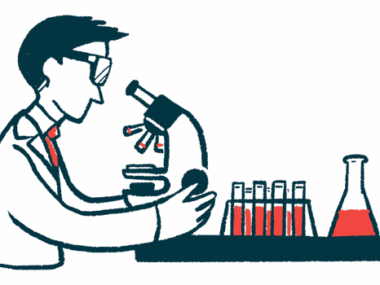Soleno pledges $5M in research funding to look for PWS cure
Company to award grants for 'most promising genetic approaches'
Written by |

Soleno Therapeutics plans to help accelerate research toward finding a genetic cure for Prader-Willi syndrome (PWS).
“We will commit up to $5 million in grants in the next year, where we will find the most promising genetic approaches to treat PWS, and find the ones where further significant investment is needed,” Anish Bhatnagar, MD, Soleno’s CEO and chairman, said during his acceptance speech for the Foundation for Prader-Willi Research (FPWR)’s Champion of Hope Award.
Soleno’s initiative “complements FPWR’s mission to drive innovative research and bold ideas that improve the lives of those with PWS,” the foundation said in a press release. “Together, efforts like these are paving a powerful pathway from basic discovery to clinical solutions that bring us closer to life-changing treatments and, ultimately, a cure for PWS.”
PWS is caused by the loss of genes on chromosome 15 that control various bodily processes, including metabolism, growth, intellectual ability, and social behavior.
A hallmark of the disorder is hyperphagia, an intense, persistent feeling of hunger, accompanied by a constant preoccupation with food and food-related behavioral challenges. Unless diet is strictly controlled, hyperphagia can lead to obesity and related health problems.
Vykat XR eases hyperphagia, ‘but it is not a cure’
The U.S. Food and Drug Administration approved Soleno’s Vykat XR (diazoxide choline) in March as an oral therapy to reduce hyperphagia in people with PWS ages 4 and older. The treatment is designed to reduce the release of appetite-signaling molecules, which is expected to ease hyperphagia.
Vykat XR’s U.S. approval was supported by data from the Phase 3 DESTINY PWS trial (NCT03440814) and its open-label extension C602 study (NCT03714373). While DESTINY PWS failed to show Vykat XR’s superiority over a placebo in reducing hyperphagia, one year of Vykat XR in the extension study significantly eased hyperphagia and improved behaviors.
In addition, hyperphagia worsened among patients who switched from Vykat XR to a placebo during C602’s withdrawal period, compared with those who remained on treatment.
Vykat XR became available in the U.S. in April as extended-release tablets taken once daily, and is under review for approval in the European Union.
“Hyperphagia alone has effects that touch every part of life and every member of the family,” Bhatnagar said. “Vykat XR will change many lives, but it is not a cure.”
Soleno’s drive to find a genetic cure for PWS will be led by Bhatnagar and Neil Cowen, PhD, the company’s senior vice president for drug development. They will assemble an expert advisory board to guide the most promising approaches for funding and identify those that merit more significant investment.
“Soleno’s commitment to the PWS community is nothing short of inspiring,” Stacy Ward, CEO of Prader-Willi Syndrome Association USA, said in an association press release. “This research has the potential to change the future for individuals and families affected by PWS. We can’t thank them enough for their efforts to support our loved ones.”






